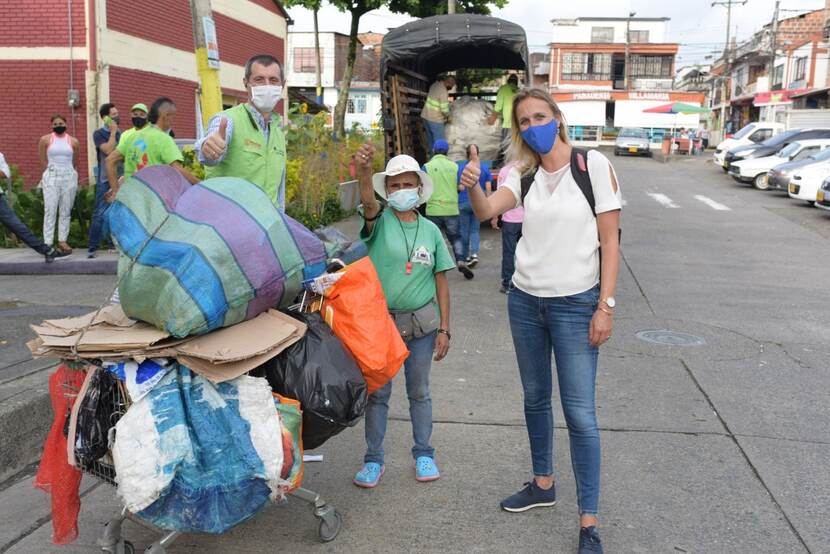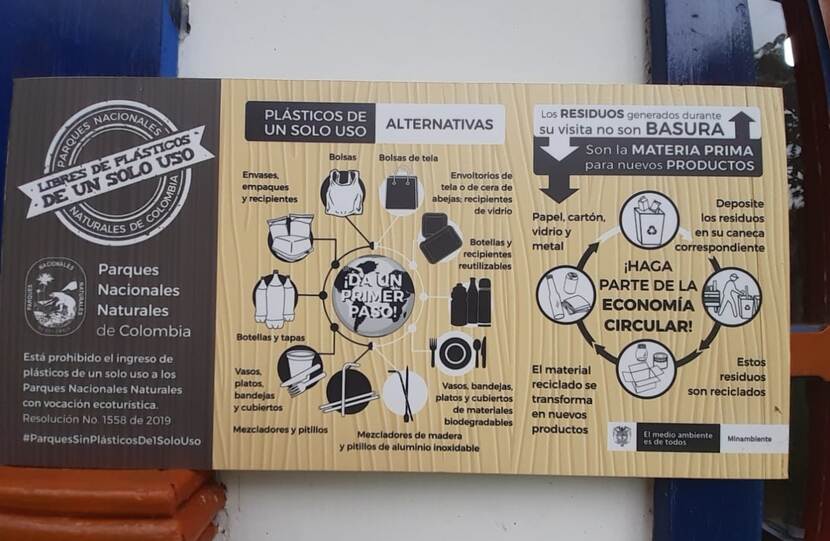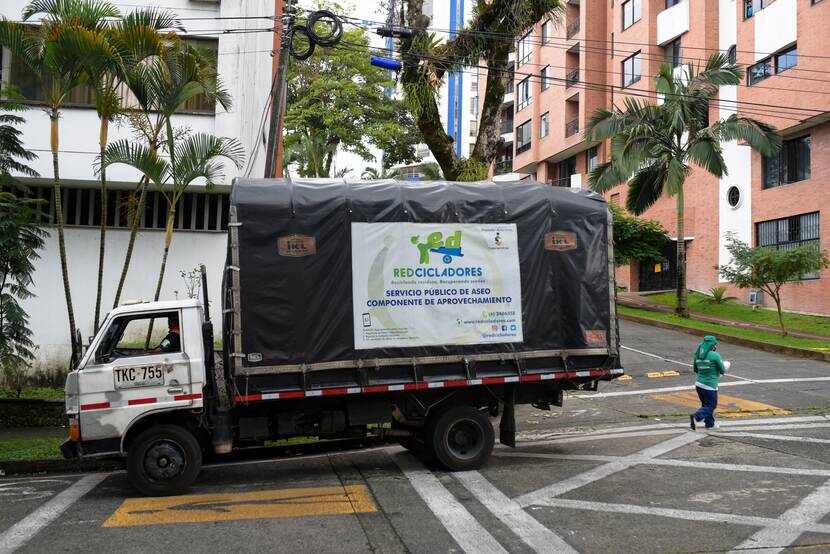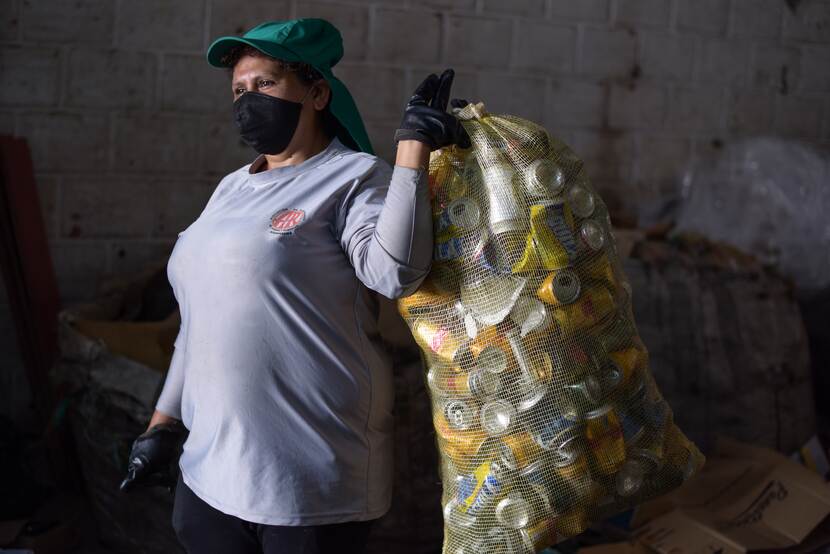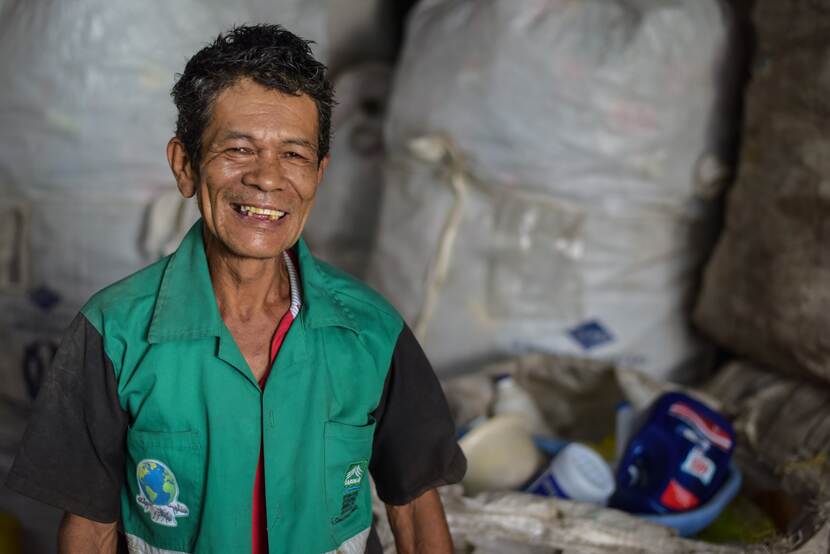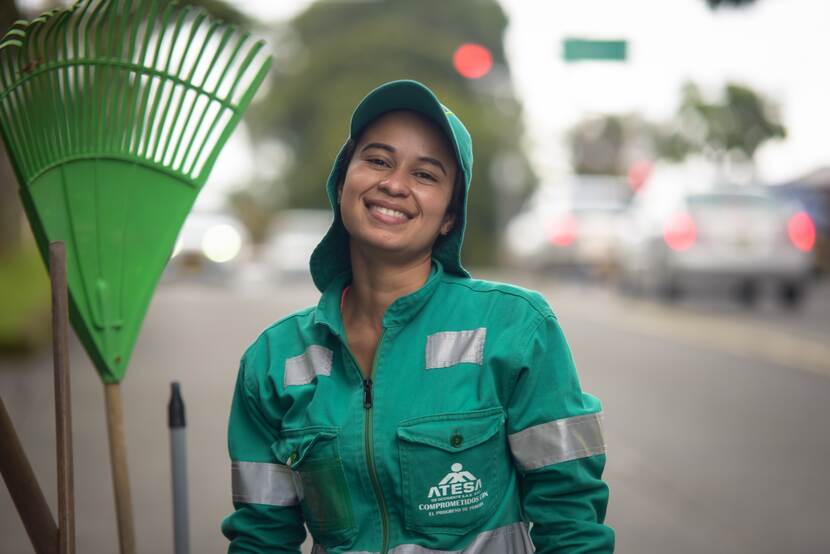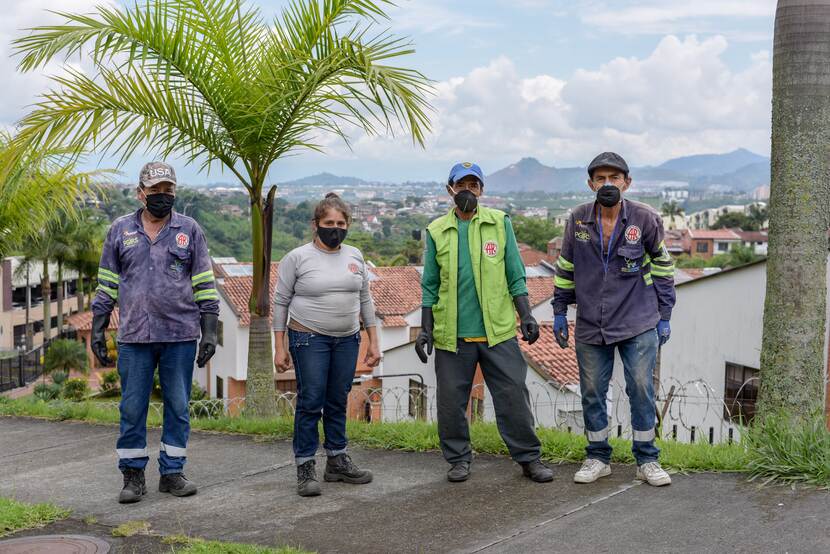‘Didn’t pick up any waste today? No meal tonight!’
Colombia is a country that takes recycling seriously. A hundred thousand waste pickers are crucial to the collection of reusable waste. With Dutch support they’re now getting a real job, says waste specialist Linda Breukers, speaking from Pereira. ‘Now these people will get a fair wage.’
Colombia was the first country in Latin America to have a circular economy strategy. You wrote the chapter on packaging materials.
‘That’s right. In 2018, Colombia was the first country to present a National Circular Economy Strategy. Now, Chile, Peru and Ecuador are also making strides in that direction. Since Colombia became a member of the OECD (Organisation for Economic Cooperation and Development), businesses have had to comply with strict legislation on recycling. Plastic straws, stirrers, beakers and bags are now banned in national parks. In Santa Marta, on the Caribbean coast, plastic bags were banned from shops a month ago.’
A ban on plastic: that’s great!
‘It’s a populist ploy to call for a total ban on plastic, as is now happening in Santa Marta. That doesn’t make sense to me. Places in Colombia are very spread out. Is it a good idea to have a truck drive 1,000 km through the mountains, loaded with glass bottles that weigh a lot more than plastic and thus generate more CO2? Sometimes plastic is the better choice. Take cucumbers: plastic film extends their lifespan by almost two weeks. Which is ideal if transport takes days.’
How environmentally aware is Colombia?
‘In Barranquilla, a city with a population of one million, the water was cut off last week: the level of waste substances in the water coming from the mountains was too high. The beach at Palomino is disappearing as sea levels rise. Last year, a hurricane wreaked havoc on San Andrès and Providencia, Colombia’s Caribbean islands, destroying nearly all the infrastructure. Environmental pollution and climate change are visible, so the awareness is there. But the country is poor; it can’t afford to make big investments in climate adaptation. So we have to tackle the problem at source, for example by reducing the waste mountain.’
Is a lot of waste already being recycled in Colombia?
‘98% of waste is collected. In many communities, refuse trucks come three times a week; once a week in small villages. A third of PET bottles are recycled, 90% of glass is reused; there’s an informal system whereby neighbourhood shops refund deposits on Coca-Cola and beer bottles. 95% of cans are collected, because the material they’re made of is valuable.’
In Colombia around 100,000 waste pickers, armed with shopping trolleys, scour the streets for useable materials.
‘Just like 60% of Colombians, waste pickers work in the informal sector. They have their own routes and go out in advance of refuse trucks, picking up recyclable materials like glass, plastic and cardboard. Black bin bags are for the waste disposal service, white bags are for the waste pickers. On average, they have four or five children, which means that around half a million people live on the proceeds of waste picking.’
What exactly are you doing in Pereira?
‘Three years ago we started formalising the work of waste pickers in this medium-sized city. We’re doing this together with the international branch of the Association of Netherlands Municipalities (VNGi), which receives a grant from the Ministry of Foreign Affairs for this purpose. Previously, waste pickers handed in the waste they had collected and were merely paid for its value in cash.’
‘Since 2016, Colombians have also paid a fee for the service the waste pickers provide: collecting recyclable waste. The fee is collected by the main refuse collection companies, which then pay it to the waste pickers. The waste pickers who opted to join the formal economy have seen their income increase. On paper the system works – in practice there are still some implementation issues, mainly with the payment to the waste pickers. I hope we’ll be able to solve them in the near future.’
Why do you want to formalise the work done by waste pickers?
‘Waste pickers think with their stomachs. Didn’t pick up any waste today? No meal tonight! If these people are formally registered, it will be easier to make sure they get paid a fair wage, and to issue them with boots, gloves and a uniform. If a local authority knows who they are, where they live and how many children they have, it can also help them and their children get access to education and other basic needs.’
That must make the waste pickers happy.
‘Out of 100,000 waste pickers, one-third now has a formal job. But not everybody’s keen to have an employment contract. Many of them are in their sixties and illiterate. It’s a job that’s passed down from generation to generation; contracts are unheard of. Why would they sign something that obliges them to get up early, when they’re used to having their freedom? And others are paid in drugs – because some of these people are homeless and addicted. This initiative is shedding light on a social problem.’
How the Netherlands is contributing to this project?
‘The Dutch like to share knowledge about water management and climate adaptation. We got together with local authorities and organisations to devise ways to formalise the work of as many waste pickers as possible and to recycle more waste. We set up a public information campaign to make the waste pickers ambassadors of the local waste policy. They visited the residents of Pereira and distributed fridge magnets with their contact details and a flyer with information about their route. So people can contact them directly when they have recyclable waste.’
What other smart approaches have you come up with?
‘We invited the mayor of Pereira to see how the Dutch waste collection system works. We went to the recycling centre in Leusden to see if something similar could be set up in Pereira. We’ve also mapped all the waste collection routes using a GPS system, to help waste pickers work more effectively and collect more kilos per day. Instead of lengthy planning and testing sessions, we are opting for pragmatic solutions. That’s a Dutch strength: just get started! And if something doesn’t work the way you’d hoped, it’s not the end of the world. You simply adjust your approach.’
